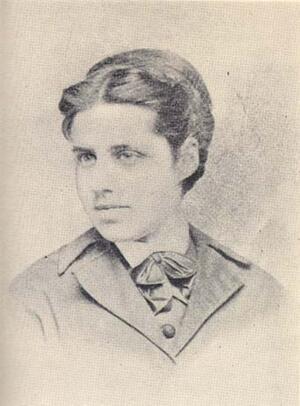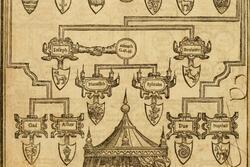Lazarus’ Lessons
Emma Lazarus was a 19th century Jewish American writer whose poem “The New Colossus,” engraved on Lady Liberty’s platform, embraces immigrants as they enter the United States. Though she was from an upper class family, Lazarus defied societal restrictions and norms and dared others to do the same. She confronted sexism, anti-Semitism, and class struggles in her pursuit of a career in writing and activism.
Despite the fact that writing was an uncommon profession for women at the time, Lazarus rose in popularity and success. She took control of her own career, unencumbered by conventional societal ideals. She published her first book of poetry before she turned 18, and then sought out Ralph Waldo Emerson as a mentor.
Lazarus often wrote about issues pertaining to Jewish people: the treatment of Jews in America and the struggle of Jews worldwide. With the vicious onslaught of pogroms throughout Russia, Lazarus saw the influx of Jews immigrating to America.
Since Lazarus’ family had immigrated to America before the Revolutionary War, they were considered to be the refined elite. Typically, upper class American Jews did not regard Jewish immigrants sympathetically. These wealthier Jews were focused on maintaining their high status in society and didn’t want lower class immigrants to weigh them down. However, as in many aspects of her life, Lazarus took an independent approach.
Lazarus volunteered with the Hebrew Immigrant Aid Society and called attention to the immigrants’ struggles. After being asked to write a poem for the plaque on the Statue of Liberty’s platform, Lazarus chose to cement a message of warm welcome to immigrants in “The New Colossus.” Lazarus’ poem resonates today, relaying a crucial message of inclusivity in a time of uncertainty–especially regarding the future of Deferred Action for Childhood Arrivals (DACA).
DACA was ushered in by an executive order signed by President Obama in June 2012. It’s a vital protection for people who immigrated to America as children but never gained legal status. The program allows these people–called Dreamers–to stay in the country with a two year renewable visa, and therefore emerge from under the radar without threat of deportation.
Five years later, President Trump has put DACA, an act of basic human compassion, in peril. In September of this year, Trump rescinded the DACA executive order. The deadline for eligible DACA recipients to apply for or renew a visa expired October 5. Now, Congress has six months–until March 5, 2018–to figure out a solution for the policy.
According to CNN, nearly 800,000 people will be forced to uproot their lives if the DACA program is taken away. These Dreamers have grown up only knowing America and its culture. They have gone to school here. They have planted their roots here. DACA gives Dreamers the ability to continue to participate in and positively contribute to American society.
When considering this new threat to DACA, we must remember Lazarus’ relevant lessons.
Lazarus asks us to take responsibility for the wellbeing of all people. She asks us not to turn our backs on immigrants and to remember that, except for indigenous people, all Americans are immigrants. She asks Jews, specifically, to remember their hardships as immigrants. Lazarus asks us to see America as a country that, by nature, embraces immigrants with open arms.
Now more than ever, we must heed Lazarus’ iconic words: “Give me your tired, your poor,/Your huddled masses yearning to breathe free,/The wretched refuse of your teeming shore./Send these, the homeless, tempest-tost to me,/I lift my lamp beside the golden door!”
This article is also published on Spark Movement, and on Teen Voices at Women's eNews
This piece was written as part of JWA’s Rising Voices Fellowship.








Great work, Sofia! Emma Lazarus is such a wonderful role model.
This is great, Sofia. Mazel Tov!